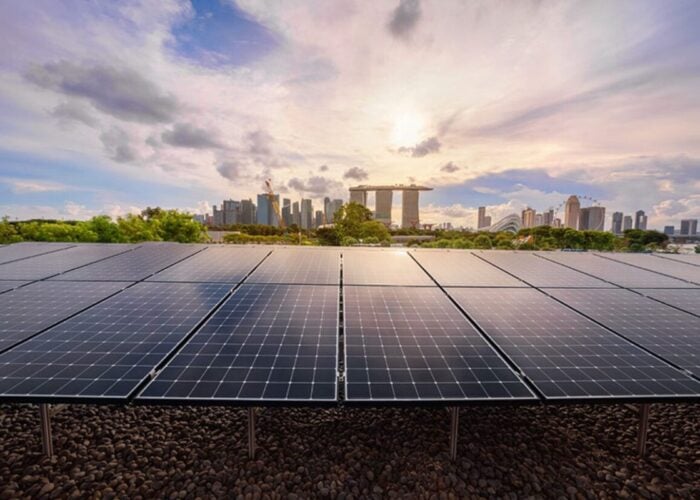
A leading PV technologist has called for cell-level testing to become the industry norm to prevent potentially severe degradation issues in next-generation solar cell technologies.
Professor Bram Hoex, deputy head of the School of Photovoltaic and Renewable Energy at the University of New South Wales, Australia, said problems uncovered in TOPCon and heterojunction (HJT) cells meant new testing regimes were needed to keep on top of new failure modes in rapidly commercialised technologies.
Try Premium for just $1
- Full premium access for the first month at only $1
- Converts to an annual rate after 30 days unless cancelled
- Cancel anytime during the trial period
Premium Benefits
- Expert industry analysis and interviews
- Digital access to PV Tech Power journal
- Exclusive event discounts
Or get the full Premium subscription right away
Or continue reading this article for free
In an interview with PV Tech Premium published today, Hoex said issues such as metallisation contamination in TOPCon cells could lead to a performance decline of up to 50% in modules within only a few years.
Although most of these issues can be avoided with the right bill of materials, Hoex said that with new technologies moving from concept to production so quickly, more detailed cell-level testing was required as standard within the industry to pick up on emerging failure modes.
Hoex said that as the vast majority of modules using new cell technologies are produced by large Tier 1 Chinese producers, which are aware of the problems and have advanced testing capabilities, he did not fear a “ticking time bomb” with TOPCon and HJT reliability. But he said in markets such as the US, where efforts to establish a domestic PV supply chain are leading to the emergence of new, less experienced manufacturers, there was a greater risk of problems emerging.
“If those companies think that TOPCon is as robust as PERC, they will get some nasty surprises,” he said.
Ultimately, Hoex warned that the industry needed to exercise caution in its rush to embrace next-generation technologies without giving due attention to reliability.
“The main thing I’m saying is stability is as important as efficiency,” he said. “So, if your degradation rate increases significantly, then your high efficiency is worth nothing. You lose all the benefits. If your degradation rate goes up, then your LCOE may even be higher than a stable PERC module.”
To read PV Tech Premium’s interview with Bram Hoex in full, click here – subscription required.






